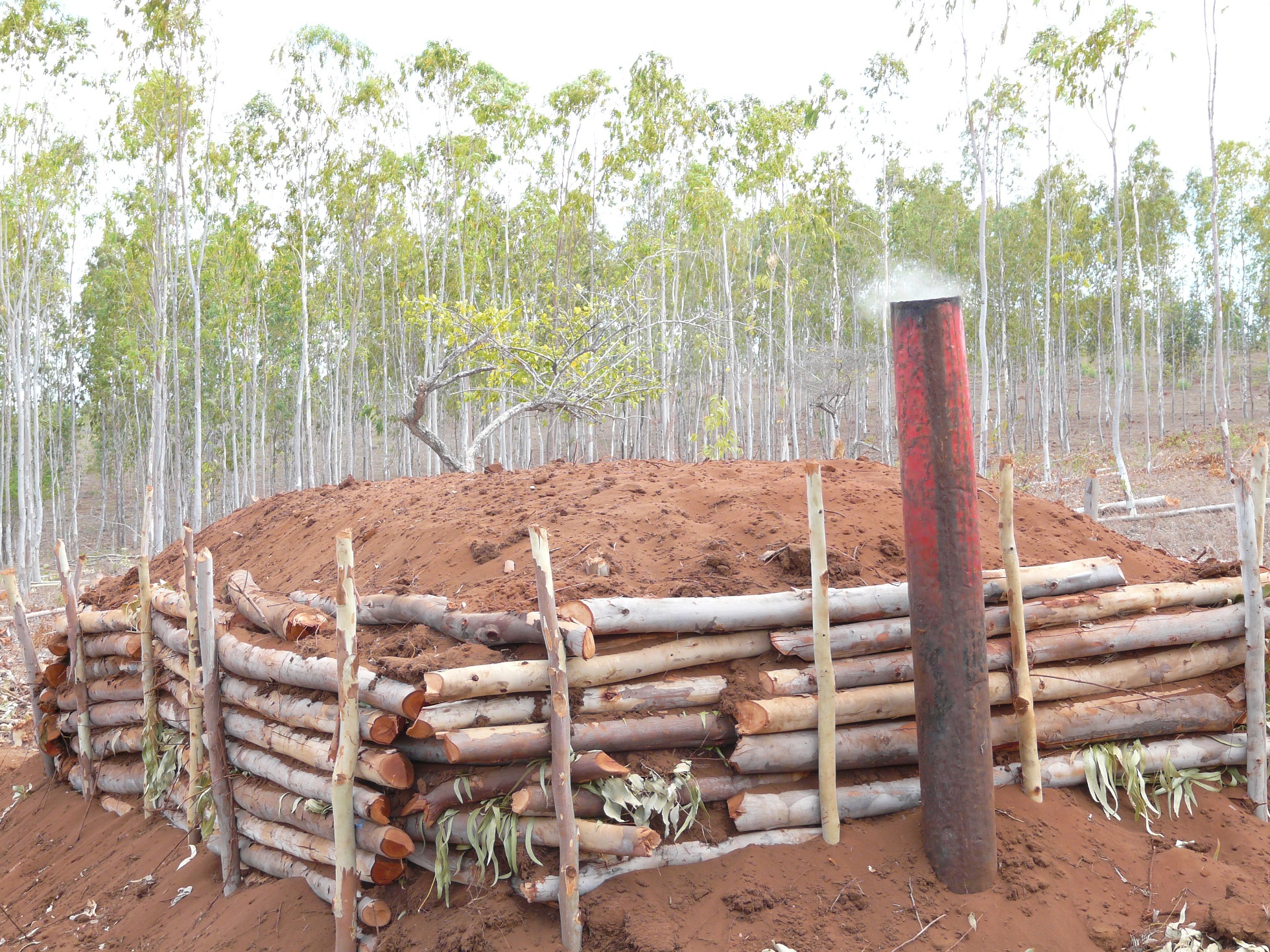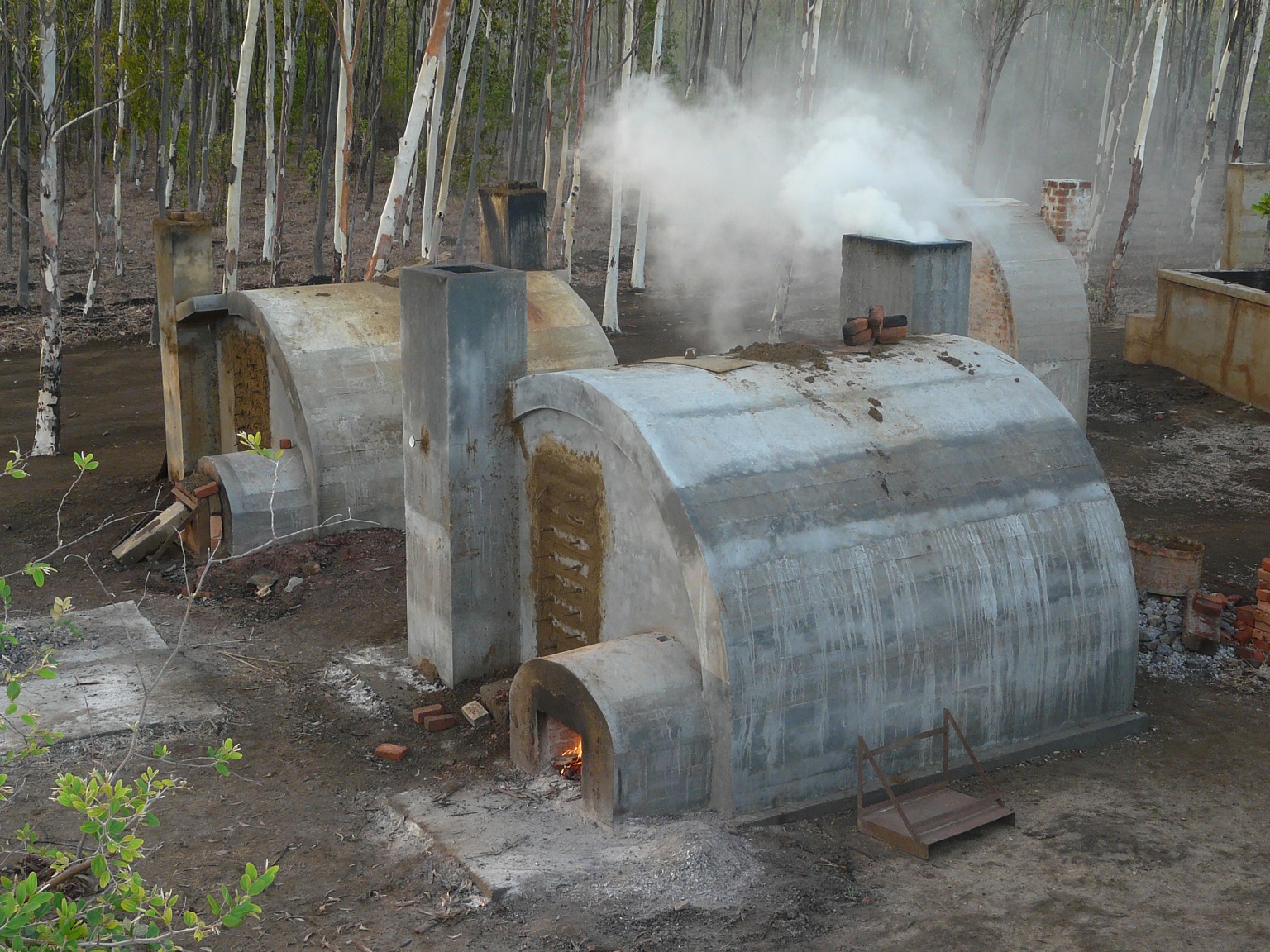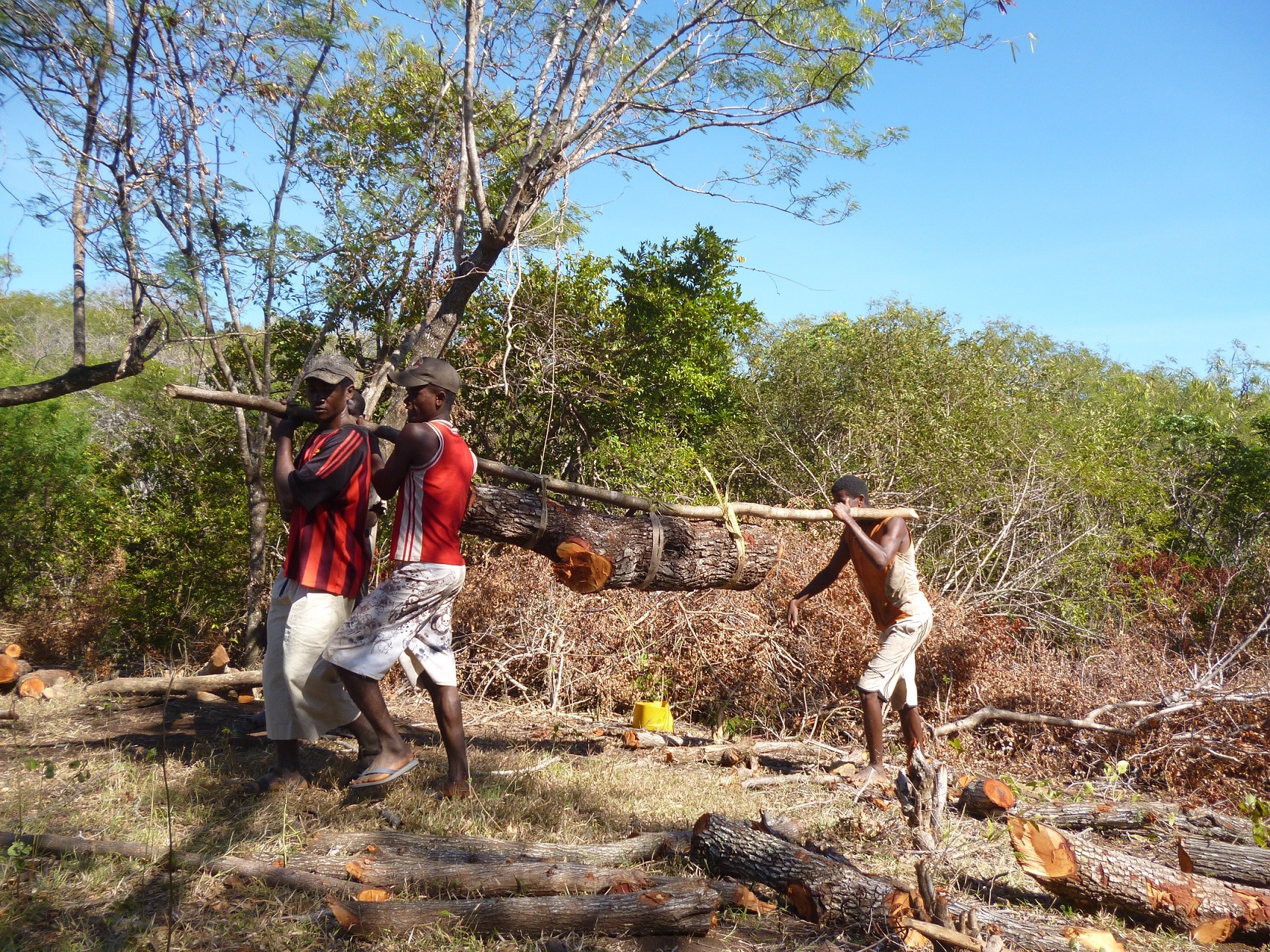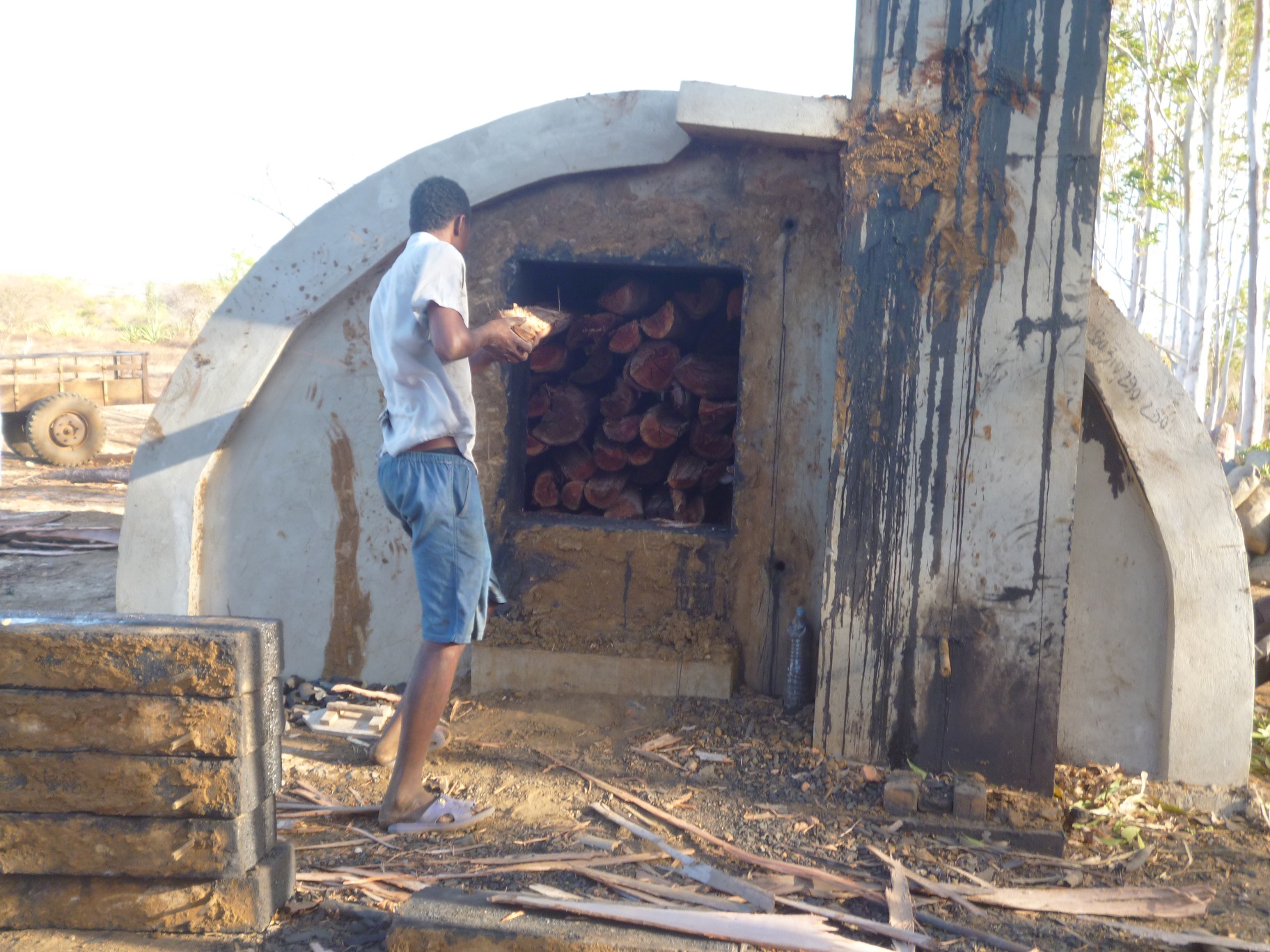




Improved traditional kilns and high performance retorts such as the stationary “GreenMad Dome retort” were introduced. The retort has a proven efficiency rate of more than 30% compared to traditional kilns. The internal rate of return (4,500 €/unit) exceeds 40%, a 3 times higher output. New climate-friendly kilns with methane recycling cut carbonisation time from 7 days to 72 hours. Micro credit services were provided by local microfinance agencies (OTIV) and the use of alternative fuels such as chips, briquettes and pellets were demonstrated.
Forest owners and charcoalers organised themselves as shareholder groups, create a registered micro-enterprise to invest and run the retort, and commercialise the produce on the basis of a rural energy market.
The business plan of the established company is based on the plantation management plan. Producers pay duties to the commune & taxes to the region. Several rural energy markets join forces to establish an urban charcoal market and facilitate traceability by creating a “green value chain”. Economic returns increased by ~30% compared to traditional marketing structures.
- A consensual wood energy modernisation strategy for the region („Vision 2025“) on local wood energy markets, industrialisation of carbonisation processes, avoiding uncontrolled logging in primary forests
- Fast-growing plantations managed with short rotation cycles yield large quantities of wood
- Involvement of beneficiaries in research/action process to see the differences of efficiency gains compared to their usual technology
- Two-level know-how transfer (trainer to users, users to users)
- Instead of prior traditional kilns that operate on a rate of effectiveness of 10-12% and waste large portions of resources, charcoal burners in the project area use improved kilns with effectiveness rates of up to 35%
- Another advantage of the retort is that it avoids CH4 emissions by recycling flue gases that would be normally emitted into the atmosphere. Because of the high global-warming potential of CH4 (21 times that of CO2), this technology yields significant CO2-equivalent reductions
- The introduction of improved kiln technologies gave the local producer associations the financial leeway to get further involved in woodfuel marketing, reap benefits and include sustainability standards. Furthermore, they are able to comply with financial rules and obligations as they got formalized